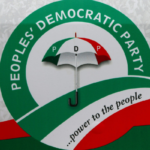The year 2020 would be remembered as the year that the coronavirus visited the world and transformed every dimension of human endeavors, from eating and greeting habits to administrative frameworks and the way we see the human world. With millions already dead and many more infected the pandemic has already defined a new normal in human relations and activities.
It does not take any serious reflection to see that public administration becomes the most significant human endeavor to be challenged not only in dealing with the pandemic, but also in responding to the ordering of the human world in a post-COVID-19 world. All across the world, public administration has often been called upon to deal with wars, pestilences, development efforts, and state projects of all kinds. In Nigeria, for example, public administration had to contend with the task of prosecuting the Nigerian civil war as well as outlining an administrative framework for a post-war social rehabilitation and reconstruction.
- End attacks on Abuja-Kaduna Road, reps tell security agencies
- FG, National Assembly lack political will to restructure Nigeria – Jega
The implication of this assessment of public administration and its confrontation with existing realities of each period in history is that public managers must always operate efficiently within what has been called a VUCA—volatile, uncertain, complex and ambiguous—administrative environment. In such an environment, public managers and the public service are tasked beyond what the traditional administrative machinery is able to take charge of. This is the situation with the COVID-19 pandemic. It has created a volatile situation determined by the unpredictable behavior of the virus. This makes the administration of human activities even more complex than it usually is. For instance, the lockdown procedures come with stringent economic realities that affect human freedom and well-being.
One of the greatest challenges of the public service, especially in a postcolonial administrative context like Nigeria, is the determination of what bureaucratic model could best enable a public service that is effective and efficient sufficiently to deal with the challenges of the VUCA environment while also smartly delivering democratic services. Max Weber, the German philosopher who did a lot to influence the emergence of the traditional administrative model, was also confronted with this kind of VUCA-situation in the early twentieth century. The crisis situation came as a result of the hostility between the German Emperor, Wilhelm II and his Chancellor, Otto von Bismarck, over the content of foreign and social policies. The emperor’s erratic foreign policy has been considered to be one of the root causes of World War I. Max Weber was a very keen philosophical observer of the defeat of Germany in the first world war, as well as the bureaucratic implications of the power tussle between Wilhelm II and Chancellor Bismarck. For instance, he noticed how administrative dominance of the state consolidated in the absence of a strong political leader. This led him to reflect deeply on how to juxtapose political leadership with a bureaucracy that assist the state in terms of modernisation and development.
Weber’s understanding of the crisis led to a need to model the politician-bureaucrat relationship in ways that determine the boundaries of power and authority around policymaking. For Weber, the way out was to generate a bureaucratic tradition that centralized legal-rational authority founded on hierarchical structure and a one-size-fits-all service-wide standardization of governance and operations. The command-and-control structure constructed the public servant as apolitical, loyal, neutral and anonymous. With the bureaucratic model, Weber achieved a crisis management dynamic in the aftermath of the First World War. The question, however, is whether that Weberian model is sufficient to handle the crisis occasioned by the COVID-19 and the myriad challenges of the new normal? Putting the questions like this speaks to the need for organisations like the public service to recognise the necessity of change as the most constant factor that demands of organisations a reform template made up of continuous learning, change management and iterative incremental improvements. In organisational development theory, organisations usually fall prey to three development traps that define what has been called the “first cycle” of the bureaucratic culture. First, organisational success leads to self-satisfaction and an unreflective defense of the status quo. Second, size brings the fragmentation of organisational procedures that takes the public managers far away from customers’ feedback which serve as the mechanism for innovative growth. Third, the age factor implies that the older an organisation gets, the more it breeds tradition which over time tends to supersede innovative and creative handling of challenges.
The question of high-performing public service in a time of crisis also demands the emergence of astute public managers who see decision-making as the nerve of organizational efficiency. However, decision-making must not be allowed to degenerate into groupthink that hinders individual and organisational creativity, information overload, analysis paralysis that leads to indecision, or overconfidence in the crisis management competence in ways that create tension at both the operational and strategic levels. The efficiency of any CEO or public manager depends on three critical competencies. The first is the capacity to effectively delegate authority in a way that prioritises the discretion of the crisis manager to independently work in the organisational frontline within a framework of exceptions to the rules that do not however erode the normal regulations in ways that break down the organisation. The second competence the public manager needs require creating a balance between the command-and-control dynamic on the one hand and the participatory team-based decision-making approach on the other. The third competence that a crisis period demands, is the need for intelligent public managers to be open to alternative scenario planning that anticipates both uncertainties and possibilities. A public service that wants to be efficient in the new normal created by the COVID-19 pandemic must, within the imperative of scenario planning, adopt a framework of strategic thinking that becomes strategic by challenging the status quo, challenging assumptions and framing strategic choices that allow the public service to not only wade through the difficult times, but also make the best of the situation for the benefit of the citizens. In the new normal, public administration is now doubly tasked to achieve an efficient service delivery to the citizens. This means that it can not be business as usual for public managers, not in terms of the traditional bureaucratic culture and definitely not in terms of the skills and competency sets. The new normal requires a new public service that is smart and decisive with regards to decision that transforms the well-being of citizens who are struggling to make sense of their environment.
By Prof. Tunji Olaopa, a Professor of Public Administration, National Institute for Policy and Strategic Studies (NIPSS), Kuru, Jos

 Join Daily Trust WhatsApp Community For Quick Access To News and Happenings Around You.
Join Daily Trust WhatsApp Community For Quick Access To News and Happenings Around You.


